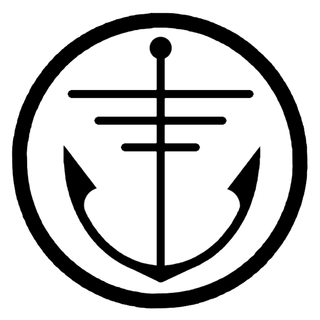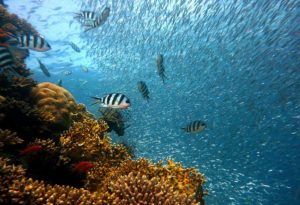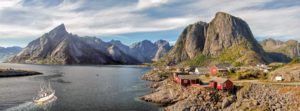The Centre for Ocean Ventures & Entrepreneurship (COVE) is an ocean technology innovation hub based in Halifax, Nova Scotia. It was founded in 2018 and works both regionally and globally to support promising ocean tech startups and established corporations. In this interview with the new CEO of COVE, Melanie Nadeau, reflects on the growth of the organization, her first hundred days at the helm, and what the future may bring.
The Liquid Grid (TLG): Canada is quickly establishing itself as a global powerhouse for ocean technology. What do you see as the unique role of the COVE in fostering the marine technology startup community?
COVE: Since opening in 2018, COVE has become the only place that has everything an ocean tech company needs to grow: from wharves and in-water labs to co-working spaces and workforce training opportunities. Since our founding we have been successful in building a community with the right mix of tenants which includes not only start-ups, but also larger companies that have experience and global connections. That adds a lot of value to all the enterprises that are part of COVE. As an example, because of COVE, I’ve seen partnerships develop where a start-up works with a multi-national to manufacture their product and get it to market. In our three years, we have formed more than 40 partnerships and become globally recognized for our role in advancing ocean technology and business.

TLG: Does COVE focus on particular sectors within the blue economy? If any, why those? What do you see as the long-term impact of COVE on the region with regards to climate change?
COVE: There are several important economic growth areas that we are active in: marine transportation, aquaculture and fishing, marine tourism, marine defence & security and offshore energy. In each of these, we strive to ensure that we manage the economic opportunities from the oceans sustainably.
For example, lowering emissions from marine transportation and reducing overall noise impacts and thus, subsea environmental impacts, is critical for the health of our planet. New technologies are focused on reducing drag on vessels and overall fuel consumption, batteries and fuel cells will allow vessels to further decarbonize. Decarbonization of in-shore vessels also provides great opportunities for eco-tourism.
Offshore renewables are important to Canada. Right here in Nova Scotia, we have a premier tidal energy location in the Bay of Fundy, certainly one of the strongest in the world. To the south in New England, offshore wind projects are under development which rely on many supply chain capabilities originating in Canada, many of which reside at COVE.
I’m also seeing many new technologies focused on improving environmental aspects of fisheries such as reducing plastic use, enforcing sustainable catch-limits, and reducing emissions from fishing vessels. There’s a significant amount of work happening on the use of protein derived from the ocean as a measure for long-term food security and we believe sustainable aquaculture holds a lot of promise in providing for the world’s growing population.
Marine robotics and subsea sensors is one of the areas at COVE where there is a significant cluster of companies. These advanced technologies are largely being used by the defence sector and the scientific community to collect large amounts of data which enable a better understanding of the oceans economic potential and its sustainable management. For example, highly sensitive sensors are being developed to detect carbon in the ocean, a determinant in understanding the impacts of climate change.
We not only focus on blue economy sectors, but also environments. The Canadian arctic is receiving increased interest as various stakeholders seek to better understand and protect this sensitive environment. We’re working with several groups researching and developing advanced ocean technologies that can perform in this extreme environment.

TLG: COVE is home to a number of interesting startups and established corporations working on all sorts of new ocean technologies. Are there any projects you’re excited about?
COVE: We do have a lot going on! One project I’m particularly excited about, and which we recently kicked-off, is an undersea sensor platform called the COVE Stella Maris. Our goal with the platform is to foster Canadian ocean sector firms to develop and commercialize new undersea sensor technologies. This platform will include electrical power, optical data-communications links, and data storage facilities. COVE will operate a shoreside data system that will facilitate cloud-based mass storage of data collected by sensors and manage access to the collected data using the latest cybersecurity best practices. There’s a significant cluster of companies at COVE that are focused on platforms, technology and information services that deliver observations, measurements, analysis, and forecasts for the blue economy. The platform is a collaboration that integrates these capabilities and provides streamlined data access.
Another program I’d like to highlight is the COVE Internship Program, which focuses on the development of talent in the marine industry. Many of the firms we work with require a diverse talent mix to be successful. Some of the skill sets needed are relatively new, some may not have been around even 5 years ago. For example, autonomous vehicles and vessels, drones and sensors all rely upon the ingestion of large amounts of data. The skills required to develop the machine learning algorithms and processes needed to manipulate these data in different ways is leading to an increasing demand for ocean-savvy data scientists. To help meet this need COVE has been raising awareness across Canada about the different career opportunities in the ocean tech sector.
[TLG]: How does COVE collaborate in the marine technology innovation ecosystem, both regionally and globally? What advice do you have for ocean tech startups looking to work with COVE?
COVE: Halifax, where COVE is based, is an Innovation District, which means that it is a technology and research-dense area where people, firms and organizations are collaborating to generate and accelerate ideas. Collaboration is very important to us and we absolutely want to engage with the international ocean tech community. We began developing strong ties with the international community through development agencies or more directly with specific organizations. So far we have engaged with organizations in Chile, Germany, the United States, England – we look forward to broadening this list!
Some of the international companies that we are working with are interested in relocating here due to our resources, geographic location, and potential entry-point to the North American market. Our location is uniquely positioned in that there is a cluster of innovation centres, research institutes and significant economic activity such as the national shipbuilding strategy, all within close proximity, not to mention that we are right on the Atlantic coast.
For those groups interested in working with us or even relocating here, please reach out. We can connect organizations with the right people to facilitate re-location to Halifax; in fact there are several programs available to help them do that.

TLG: You’re relatively new to your role as CEO at COVE and just passed your first hundred days. I think many would agree that this past year has been a whirlwind, any reflections you would like to share about your time at the helm so far?
COVE: It’s definitely been an interesting time to take on a new role. A big part of COVE is centred around building connections, and that of course, has been challenged in many ways this past year. COVE adapted fairly quickly to new ways of working during the pandemic as did the many tenants at COVE. Virtual platforms have enabled us to connect across Canada and internationally to deliver on our programs and build relationships, but as we know, it’s not the same. In some ways, however, we may have been able to extend our reach in a virtual way more than ever before, so that’s an opportunity for us to leverage in the future.
COVE is at the heart of ocean sector innovation and during my first hundred days I’ve tried to meet with as many key stakeholders as possible. These stakeholders include: tenants at COVE, from start-ups to global enterprises; municipal, provincial and federal governments; academia and research institutes; corporate entities; ecosystem partners; international peers; and community and industry leaders. Central to these discussions has been the desire to drive proposerity from the sustainable use of our oceans.
TLG: Looking to the future what changes are in store for COVE? Any new strategic priorities you can share?
COVE: As we enter into our third year of operation COVE is poised to grow by building on its strong foundation, at the heart of which are our people and physical infrastructure. In 2021 we will focus on setting COVE up to be in a position to grow in both program and space. Despite the pandemic there’s continued demand to be part of this community and that’s very good news.
The growth of start-ups and scale-ups will be a strong focus for us, along with our technical program that is centered on the commercialization of technology through shared infrastructure and driving innovation that provides solutions to industries’ major challenges. Skilled employees are critical to the success of any business, particularly so in ocean tech. Moving forward we will be strengthening our involvement with academia in developing training programs to build an inclusive and diverse workforce that is necessary for the future of ocean tech.
COVE is the only place that has everything ocean tech companies need to grow, and we will continue to leverage our unique position as we scale our presence regionally and nationally. Globally, we will be looking at developing strategic partnerships with like-minded innovation hubs that are focused on the blue economy.

Melanie Nadeau. P.Eng. ICD.D
Chief Executive Officer, COVE
As CEO of the Centre for Ocean Ventures & Entrepreneurship (COVE), Melanie aligns people, companies, and opportunities to foster innovation and drive ocean technology to market. Melanie has been involved in Canada’s innovation community for over 15 years and is an expert in the commercialization of emerging technologies and developing plans that turn new technologies into revenue generating engines. Having served in the Royal Canadian Navy and in senior roles within industry, Melanie is tremendously well-versed in strategic planning, operations, and stakeholder relations. Her Board appointments have included international marine businesses and national industry associations. She’s been a noted expert for the International Energy Agency, the United Nations Environment Programme and the Intergovernmental Panel on Climate Change.
Melanie is committed to the global community; she has been chairing UNICEF Canada’s Water for Life Gala for five years running and is a business mentor with Immigrant Services Association of Nova Scotia. She is an accredited professional engineer graduating from the University of Waterloo, Canada and has an ICD.D designation from the Institute of Corporate Directors.
Connect with COVE:
Twitter: @COVE_ocean
Facebook: @COVEoceanns
Instagram: @coveoceanns
LinkedIn: Centre for Ocean Ventures and Entrepreneurship (COVE)
YouTube: COVE




